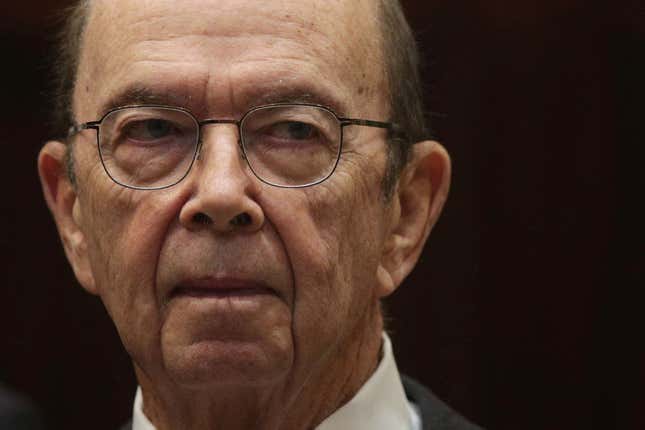
It’s funny how the “construction” of the U.S. Constitution only really seems to matter to conservatives when said construct conforms to a belief near and dear to their hearts.
Like, let’s say, the Second Amendment, and what it has to say about guns. So-called constructionists and gun advocates often argue that any changes to law impacting who can have a gun and under what circumstances would violate the original construct of that particular amendment.
But when it comes to other things the Constitution outlines, say for instance the census, that once-a-decade survey meant to count how many folks live in the U.S. and where, conservatives don’t seem to have as much of a care.
Which brings us to the news Tuesday that the U.S. Supreme Court will consider next week whether to allow the Trump administration to add a question about citizenship status to the 2020 census.
As the Boston Globe reports, opponents of the Trump change say it will mean that fewer people will answer the survey, especially non-citizens, for fear of being caught up in the anti-immigration enforcement wave sweeping the nation.
“The Census Bureau’s own analysis was that 5.8 percent of households with a noncitizen would not respond to the census if you add the question,” said Dale Ho, a lawyer with the American Civil Liberties Union, which represents opponents to the change. “That translates to about 6.5 million people. If you put them in one state, that’s our 18th largest state.”
And, perhaps surprisingly, supporters of the Trump change agree—they just don’t seem to really care. As the solicitor general of Oklahoma told the Globe:
“Every census question will decrease response rates,” said Mithun Mansinghani, the solicitor general of Oklahoma, which filed a brief supporting the Trump administration along with 16 other states. “For better or worse, every census has asked additional questions beyond enumeration and has contained an undercount. The 2010 census undercounted Hispanics at a greater rate than non-Hispanics.”
The basic issue, he said, was whether getting the additional information is worth the harm it does to the core task of counting everyone.
But anything that discourages people from answering the census can hurt the very communities where they reside, often communities of color or of other disadvantaged groups. And that’s because census results help decide how many federal lawmakers a state has to represent it and how needed federal dollars are spent and where.
As Justin Levitt, a former Obama Justice Department official told the Globe, “... to the extent that asking a [citizenship] question this toxic in this prominent a forum undermines ‘Job 1,’ that ought to be out of bounds.”
We’ll all see what the highest court in the land decides after next week’s hearing.

